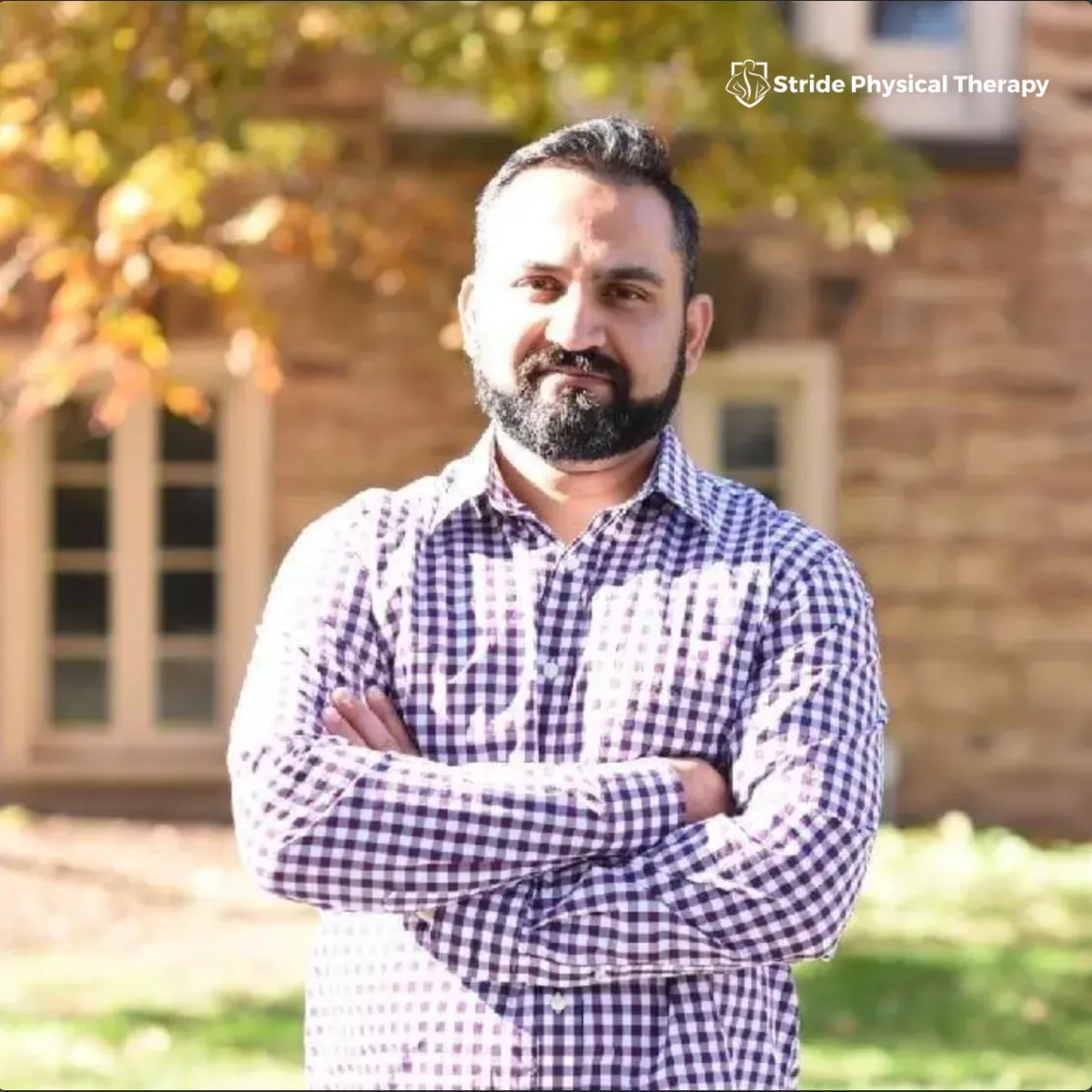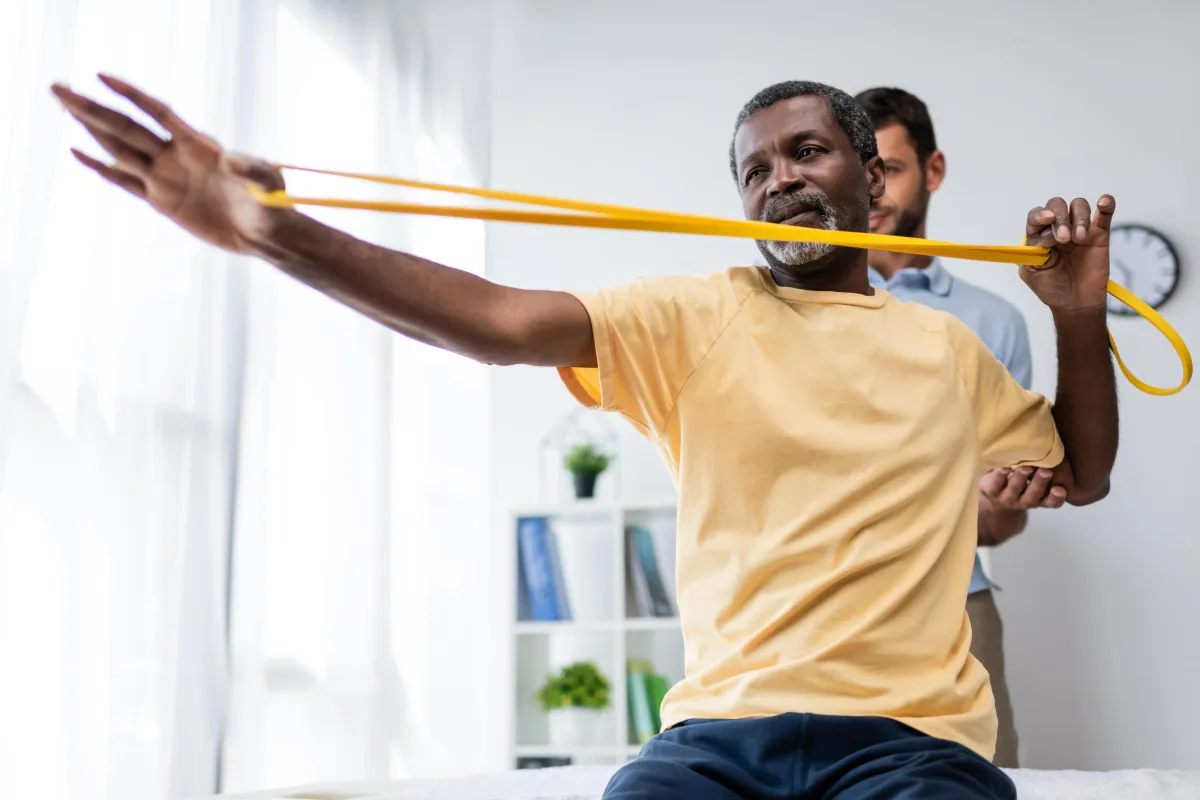Thoracic Outlet Syndrome (TOS) refers to conditions caused by the squeezing, injury, or irritation of nerves and blood vessels in the lower neck and upper chest. Named after the area located between your lower neck and upper chest, known as the thoracic outlet, TOS can affect anyone regardless of age or gender.
Types of Thoracic Outlet Syndrome
Neurological Thoracic Outlet Syndrome: This type of TOS is the most usual. It happens when the brachial plexus—a bundle of nerves running from the spine, through the neck, to the arm—gets squeezed. It often affects those who do repetitive arm motions above their head at work or play sports like swimming or baseball.
Venous Thoracic Outlet Syndrome: Thoracic Outlet Syndrome (TOS) occurs when the subclavian vein—a crucial vessel transporting blood from the arms to the heart—is compressed. Often due to congenital narrow pathway from the shoulder to the heart, TOS is worsened by repetitive arm and shoulder movements. These shrink the tight thoracic outlet space, increasing pressure on the vein and exacerbating TOS.

Quick Links
FAQs
Arterial Thoracic Outlet Syndrome: This condition, TOS, occurs when the subclavian artery—responsible for moving blood from the heart to the arm—gets blocked by a blood clot. It often affects people born with an additional rib in the neck or an irregularly shaped first rib, which can compress the artery and permanently narrow it.
Causes of Thoracic Outlet Syndrome
TOS-related problems can be confusing, but we know they happen when the thoracic outlet's narrow space squeezes blood vessels or nerves too much, leading to irritation and TOS. Also, certain conditions, characteristics, or behaviors could increase your chances of getting TOS. These are called risk factors.
Unchangeable Risk Factors: You cannot alter these factors. Having more increases your TOS risk.
~ Pregnancy
Risk Factors You Can Change: These are the factors you can manage or improve with treatment, medication, or changes in your way of life.
1. Intense weightlifting.
2. Bad posture.
3. Sports with repeated arm/shoulder use.
4. Heavy loads on shoulders.
5. Depression.
Other conditions that contribute to the development of TOS:
1. Birth defects in body structure.
2. Abnormalities in bone and soft tissue.
3. Injury-related trauma.
4. Upper chest or underarm tumors or swollen lymph nodes.
MEET YOUR RECOVERY TEAM

Kanwal Bhardwaj
PT, M.Sc.PT, CIMT, CMNT
Meet Kanwal Bhardwaj, PT, M.Sc.PT, CIMT, CMNT, the driving force behind Stride Physical Therapy in Freehold, NJ. With over 20 years of dedicated experience in the field, Kanwal brings a wealth of expertise and a passion for holistic healing to his practice. Kanwal's journey began with a Master of Science in Orthopedic Physical Therapy from Quinnipiac University in 2004. Over the years, he honed his skills and gained invaluable insights during 18 years of service in outpatient physical therapy offices. In 2014, fueled by a desire to deepen his understanding of patient care, he pursued a manual therapy certification (CIMT). This transformative experience allowed him to adopt a whole-body perspective, focusing on treating the root cause rather than just the symptoms...
At Stride Physical Therapy, we're dedicated to transforming lives. With a focus on the root cause of your condition, we're here to help you regain mobility and embrace an active lifestyle. What sets us apart? Our genuine passion for what we do. Let's stride towards a brighter tomorrow together.
Elevate Your Health with Our All-Inclusive Wellness Services!
Take one step closer to a pain-free life with Stride Physical Therapy! Discover medication and surgery-free solutions with our sessions.
Health Blog

Preparing for Surgery? Try Pre-hab to Speed up Your Recovery Process.
Getting ready for surgery? Understand that rehabilitation after surgery is key for a speedy recovery. It returns your movement and helps you stand on your feet again. Interestingly, rehabilitation before surgery, known as pre-hab, can also make your post-surgery recovery faster and even enhance the outcome of your surgery. Pre-hab means working with a physical therapist to prepare your body for surgery. Post-surgery, rehab takes over the healing process.
For a swift return to your daily life after surgery, consider Stript Physical Therapy in Freehold, NJ. Our dedicated team designs a personalized treatment plan to expedite your recovery and prepare you for your upcoming surgery.
Understanding Pre-hab vs. Rehab
Pre-hab: Participating in a pre-hab program with a physical therapist helps you get a head start on recovery and ensures a more successful surgery. Your therapist will prescribe exercises and therapeutic modalities to reduce inflammation and increase strength, giving your body an advantage as it heals from surgery. Even a few sessions can improve your overall health, so you have more strength to draw on post-surgery. Pre-hab prevents extreme weakness after surgery by building up your strength in advance.
Rehab: While pre-hab prepares your body for surgery, rehab focuses on strengthening your body afterward. Post-surgery pain and discomfort are natural, and certain motions may be challenging. However, it’s crucial to maintain movement to regain your range of motion and ensure a full recovery. Rehab helps you move safely, prevent reinjury, fight inflammation, and keep painful adhesions from forming. It also builds strength to help you quickly return to your routine.
What Results Can You Expect from Pre-hab?
Pre-hab dramatically helps people about to have surgery. Research from the Arthritis Foundation found that patients doing pre-hab recovered better after surgery and could leave the hospital sooner. Knee replacement patients who did pre-hab could walk and climb stairs well enough to be discharged from the hospital faster than those who skipped pre-hab.
Get a Jump Start on Your Recovery with Stride Physical Therapy
The health benefits of pre-hab are undeniable. If your surgery date is approaching, call Stride Physical Therapy in Freehold, NJ today to take advantage of our strengthening pre-hab services. Our team of dedicated movement experts will help you improve your strength before surgery, ensuring a smoother post-operative outcome and a faster recovery. Don’t face this journey alone—contact Stride Physical Therapy today to get the supportive, knowledgeable care you deserve.


